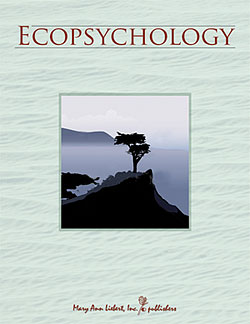![]()
“Emotional knowing is as important, and sometimes more important, than conceptual knowing, especially if we need to summon psychic energy to meet the ecological crisis that we currently face.” — David Tacey
![]()
[fusion_builder_container hundred_percent=”yes” overflow=”visible”][fusion_builder_row][fusion_builder_column type=”1_1″ background_position=”left top” background_color=”” border_size=”” border_color=”” border_style=”solid” spacing=”yes” background_image=”” background_repeat=”no-repeat” padding=”” margin_top=”0px” margin_bottom=”0px” class=”” id=”” animation_type=”” animation_speed=”0.3″ animation_direction=”left” hide_on_mobile=”no” center_content=”no” min_height=”none”]
A little over a year ago, I received a query from a person who was fact-checking a story about ecopsychology for a popular US health and lifestyle magazine. She rightly noted that ecopsychology was a highly interdisciplinary field, and hoped I could speak from, in her words, “the psychiatric side” of things and confirm that the specialty emerged when therapists began to notice their patients’ increasing stress about the greenness of their lifestyles and various environmental crises.
READ THE FULL article:
![]() September 2009 • “The Rediscovery of Ecopsychology” in Ecopsychology: 105-109[/fusion_builder_column][/fusion_builder_row][/fusion_builder_container]
September 2009 • “The Rediscovery of Ecopsychology” in Ecopsychology: 105-109[/fusion_builder_column][/fusion_builder_row][/fusion_builder_container]
